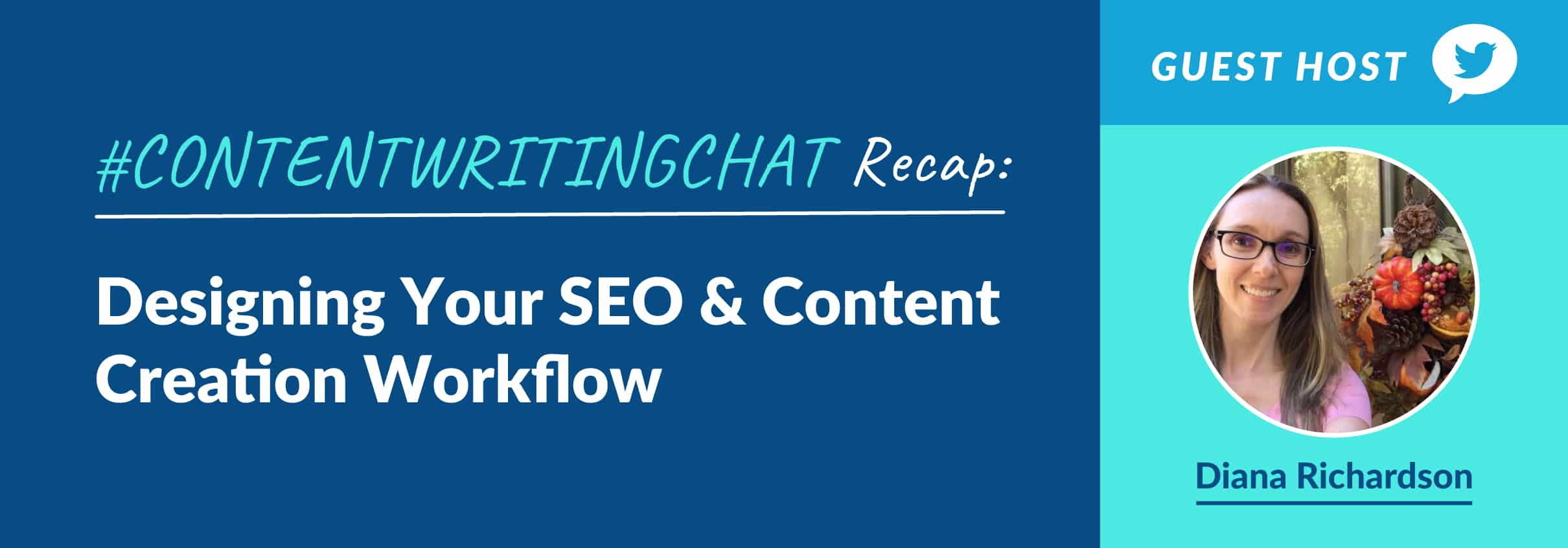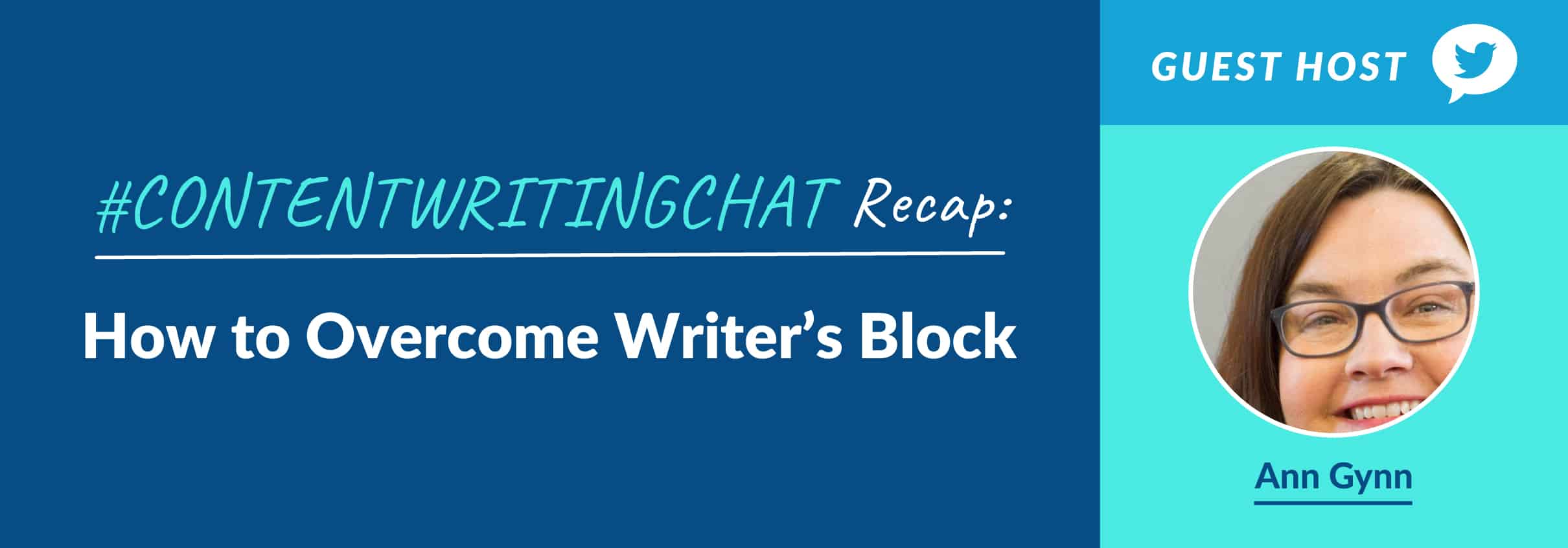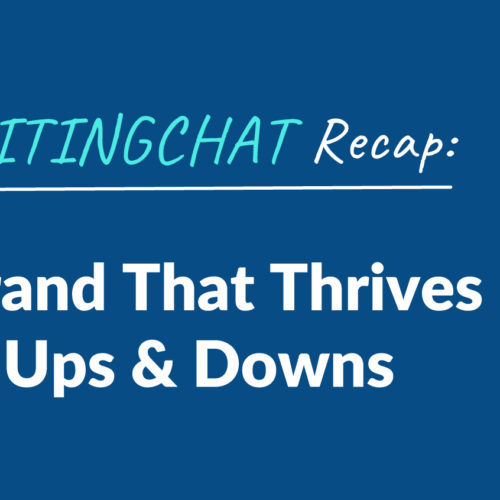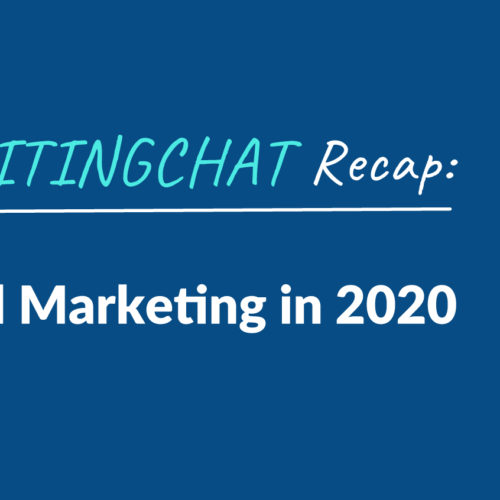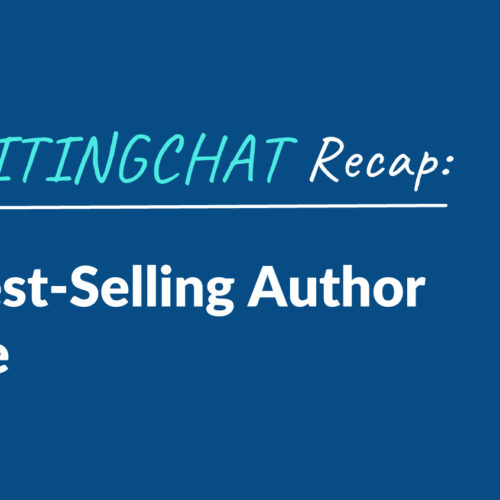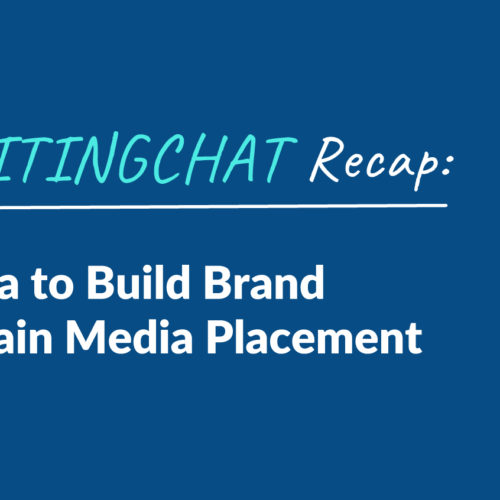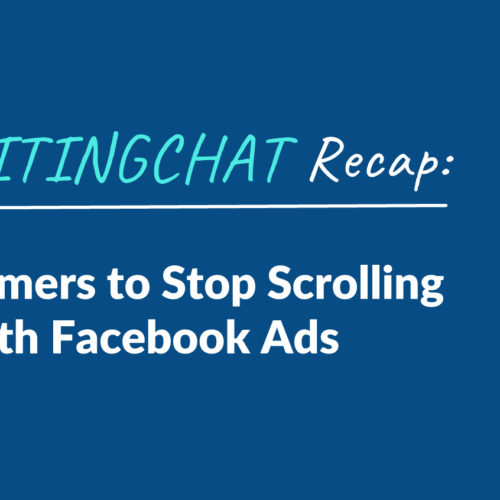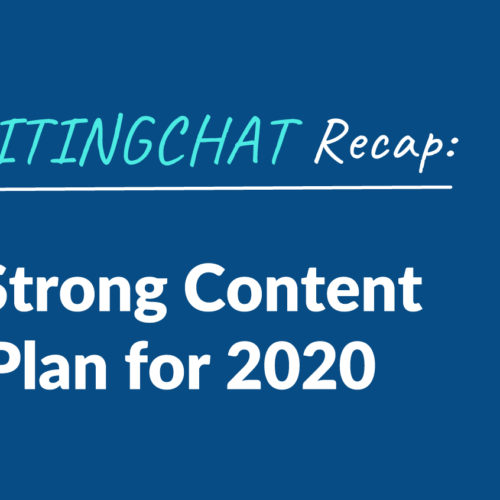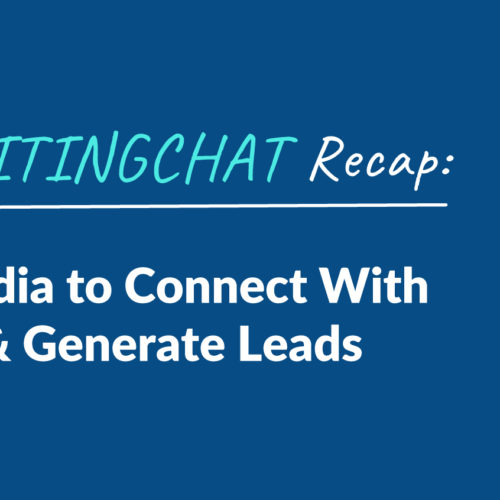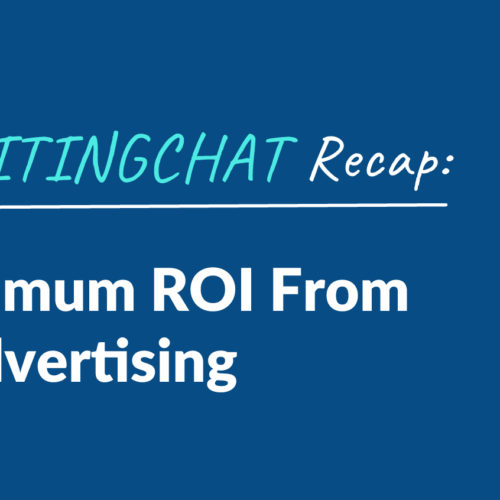#ContentWritingChat Recap: Designing Your SEO & Content Creation Workflow with Diana Richardson
Let’s talk about creating optimized content. How do you ensure you’re choosing the right topics? What can be done to increase the chances that your content will rank? And how can you incorporate keywords into your blog post without it seeming unnatural? Well, we covered all of these questions (and more) in this #ContentWritingChat. Now, the tips you need to know are packed into this handy recap. #ContentWritingChat Recap: Designing Your SEO & Content Creation Workflow with Diana Richardson Hey, friends! ?? Welcome to this month's #ContentWritingChat. Our guest host is @DianaRich013. She's a Social Media & Community Manager for the awesome team over at @semrush. Today, we'll be chatting about your SEO and content creation workflow. ? pic.twitter.com/GmwR1bZ8h0 — Express Writers | Your Content Writing Partner (@ExpWriters) November 3, 2020 This month, we were lucky enough to have Diana Richardson be our guest host once again. Diana is a Social Media & Community Manager for our friends over at SEMrush. And she joined our chat to share some tips on SEO and developing an efficient content creation workflow. Let’s dive into the recap for all the advice! Q1: What’s the first step in creating quality, optimized content? Before you dive into writing, there are a few things to consider first. Here’s what you need to keep in mind if you want your content to be successful: A1: #ContentWritingChat Step1⃣: know who you are writing ✒️for & what the end goal is. Always start there. Optimization comes later. Define your audience personas at a personal level & write like you’re writing for that person every time you create content. https://t.co/RZeiuB9FMX — Diana Richardson? (@DianaRich013) November 3, 2020 Diana suggests first knowing who you’re writing for and what your end goal is. You always want to create content with your target audience in mind. This ensures you’re writing about the topics that interest them, as well as communicating in a way that resonates. And of course, you need to know your end goal so you can tailor your content accordingly and track the ideal metrics afterwards. A1: It's important to know your audience. If you don't know who you are writing for, it is hard to create content for them. #ContentWritingChat pic.twitter.com/hUDq88E6WB — Netvantage Marketing (@netvantage) November 3, 2020 Lexie agrees that it’s crucial you know who your target audience is. Otherwise, you run the risk of attracting all the wrong people (or no one) to your content. A1: Knowing why you're writing and who you're writing for. Then you can start to worry about keywords. #ContentWritingChat — Kate Marsh (@Tillison_Kate) November 3, 2020 Don’t rush into keyword research. Kate says you need to know why you’re writing and who you’re writing for first. That will get you started on the right path! A1: To me, the writing _always_ comes first. Quality writing is paramount. #contentwritingchat — Michelle Garrett (@PRisUs) November 3, 2020 And as Michelle said, always remember that quality writing comes first. You cannot allow your writing to suffer for the sake of optimization. Q2: When diving into topic research for your next piece of content, where should you begin? Topic research can feel rather daunting sometimes. After all, there’s a lot you could potentially write about. So, how can you choose the topics that will resonate with your audience? Check out this advice: A2: (1/3) #ContentWritingChat ?Start by brainstorming several broad concepts to research to find the most interesting & asked questions. Put those broad concepts into @semrush Topic Research tool or Google them & reference the People Also Ask section. https://t.co/oYvXre5ZiF — Diana Richardson? (@DianaRich013) November 3, 2020 A2: (2/3)#ContentWritingChat Choose a ❓QUESTION ❓that needs answering & research how much & the quality of the existing content. Keep researching to find a question that is in need of more or better quality content & there’s your next piece. https://t.co/oYvXre5ZiF — Diana Richardson? (@DianaRich013) November 3, 2020 Diana suggests starting with a few broad concepts and then using SEMrush’s Topic Research Tool to narrow down your search. She says to find a question that needs answering, then check out the existing content on that topic. From there, consider what you can add or if there are any other unanswered questions that come up. A2: Begin with your audience. What are they looking for? What will be of value to them? What can you offer? #ContentWritingChat — Kate Marsh (@Tillison_Kate) November 3, 2020 Ask yourself what your audience is looking for. You want to create content that will be valuable for them, while also keeping in mind what you have to offer. The content you publish should showcase your expertise. A2 – You can start by analysing what's really popular in your space with @BuzzSumo @semrush is another great option Headover to @answerthepublic to find relevant questions to target (A combination strategy works really well)#ContentWritingChat — SEO Charge ? (@seocharge_) November 3, 2020 You can also see which topics are performing well in your field by checking out BuzzSumo. Answer the Public is another tool worth testing because you can find relevant questions that people want answers to. A2: #SocialListening is key! Understanding what your audience is already talking about is an essential part of topic research! #ContentWritingChat #socialmediamarketing https://t.co/MBaPvPExou — Raquel Sara (@RaquelSosnovich) November 3, 2020 Raquel knows that social listening is key in learning more about your target audience. Discovering what they’re talking about online can give you some helpful ideas on what you should write about. A2: Social media is a great place to check on trending conversations. If you are in B2B, your customers and partners might have a lot of insight into what you can write on.#ContentWritingChat — Kushlani De Silva (@kushlani_ds) November 3, 2020 And of course, social media is essential in social listening. Use platforms like Twitter to see trending topics and to check out conversations your audience is having. You never know when a new idea might pop up. A2 2/2 The start of topic research happens when you have … Read more
